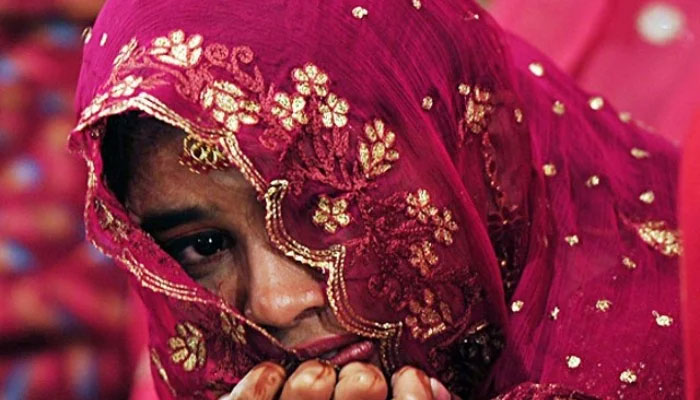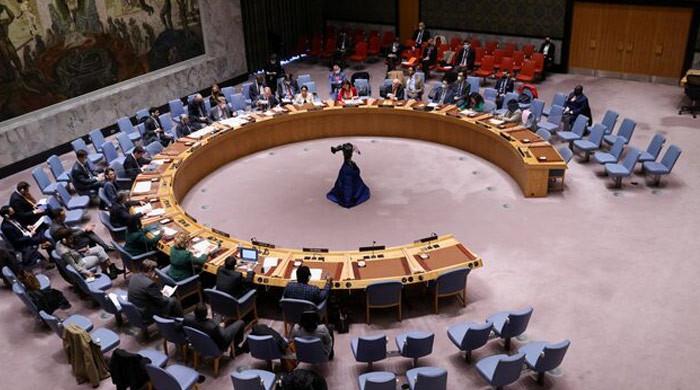'Pakistan must act to end forced child marriage'
UN experts concerned that such marriages and conversions take place under threat of violence to these girls
January 16, 2023

GENEVA: UN rights experts on Monday deplored a reported rise in abductions, forced marriages, and conversions of girls from Pakistan's religious minorities, urging the government to swiftly halt such practices.
"We are deeply troubled to hear that the girls, as young as 13, are being kidnapped from their families, trafficked to locations far from their homes, made to marry men sometimes twice their age, and coerced to convert to Islam," the experts said.
"We are very concerned that such marriages and conversions take place under threat of violence to these girls and women or their families."
The experts called on Pakistan's government "to take immediate steps to prevent and thoroughly investigate these acts".
The group of around a dozen independent United Nations rights experts includes the UN special rapporteurs on the sale and sexual exploitation of children, contemporary forms of slavery, violence against women, and minority issues.
Such investigations, it said, should be carried out "objectively and in line with domestic legislation and international human rights commitments".
The experts, who are appointed by the UN Human Rights Council but do not speak on behalf of the world body, said: "Family members say that victims' complaints are rarely taken seriously by the police, either refusing to register these reports or arguing that no crime has been committed by labelling these abductions as 'love marriages'."
The experts pointed out that abductors often "force their victims to sign documents which falsely attest to their being of legal age for marriage as well as marrying and converting of free will".
"These documents are cited by the police as evidence that no crime has occurred."
The experts insisted it was vital that all victims, regardless of their religious background, be afforded access to justice and equal protection under the law.
Pakistan's authorities, they said, "must adopt and enforce legislation prohibiting forced conversions, forced and child marriages, kidnapping, and trafficking".









